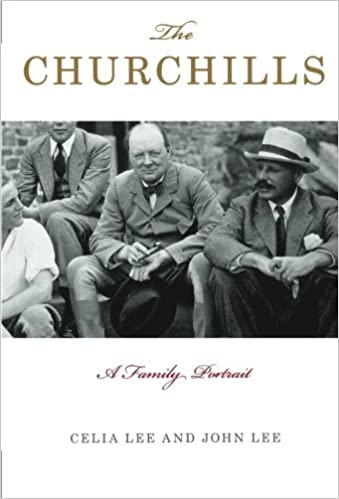
Finest Hour 192
Books, Arts, & Curiosities – Complete Picture

December 28, 2021
Finest Hour 192, Second Quarter 2021
Page 43
Review by Andrew Roberts
Andrew Roberts’ next book, a biography of King George III, will be published this fall.
Celia Lee and John Lee, The Churchills: A Family Portrait, Lume Books, 2021, 450 pages, $14.99/£12.99. ISBN 979–8744592554
Celia and John Lee, through their friendship with the late Peregrine and Yvonne Spencer Churchill, have had unrivalled first access to the private papers of Peregrine’s father, Major John Strange Spencer Churchill, Winston’s younger brother “Jack.” There they discovered several hundred family letters that point towards a new understanding of the Churchill family dynamic. Besides the hundreds of letters between Jennie Churchill and her children that earlier biographers and historians did not know existed, it became obvious to the Lees that many of these letters were answers to others that have not survived. This, together with the family habit of all reading out loud each other’s letters, suggests that Winston’s parents might not have been quite as distant as Winston and others have subsequently portrayed.
The main aim of this well-researched and well-written book is to integrate the full story of Jack Churchill into the wider family picture. He was a model child in many ways, never giving his parents a moment’s anxiety (aside from issues of health), consistently coming at or near the top of his school classes, and setting a record for never receiving a single instant of punishment at any school he attended. Inevitably, the high-spirited, pugnacious Winston would draw unfavourable comparisons to Jack from his exasperated parents.

2025 International Churchill Conference
The authors also show that both boys were in receipt of lavish presents throughout their childhood. Lord Randolph also paved the way for both of them to advance their careers in the army, as well as making financial provision for them and their future families in a trust he created for that purpose.
The financial chaos that was the Churchill family, which Lord Randolph did as much as he could to contain, but which spiralled out of control after his death when Jennie staggered from one expensive loan to another, meant that Jack was denied the military career he wanted. He did see action in the Boer War, where he was wounded, but was afterwards obliged to go into the City and work his way up in the world as a stockbroker. From this vantage point he was well placed to help guide the wider family through the Great Depression of the early 1930s, as well as help his mother through the turbulent end of her second marriage.
While settling his mother’s financial arrangements at that time, Jack discovered that Jennie had concealed the terms of Lord Randolph’s last will and testament and had for long lived the high life on monies that should have been available to her sons to get them started in family life. His and Winston’s noble but inevitably disappointed reaction to that discovery shows them both in a good light, and their mother as a profoundly selfish and, in this case, dishonest one.
By keeping us informed of the life and times of all the characters involved—Lord Randolph, Jennie, Winston and Jack and their wives and children—and of the political, intellectual, military, and social circles in which they moved, the authors are able to give us a really full understanding of this remarkable family.
After consulting with leading medical authorities, who have researched the health of the Churchill family, the authors have produced a powerful argument that supports the view of Robert Rhodes James that Lord Randolph did not die of syphilis, which was one of the rumours put about by his detractors (and seemingly believed by Winston). The case for an undetected and inoperable brain tumour is advanced with confidence instead. There is also a compelling appendix, by way of an “Author’s Note,” that shows how many of the more unpleasant stories circulating about the parents of Winston and Jack—and, indeed, their parentage—are either impossible to prove, come from highly tainted sources, or are simply second-or third-hand gossip that does not stand close investigation.
The Lees have done a fine job, and no biography of Winston Churchill or his family can be written without reference to it.
Subscribe
WANT MORE?
Get the Churchill Bulletin delivered to your inbox once a month.



